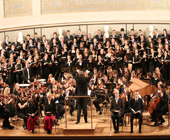
January 31 is the feast day of Saint John Bosco.
Here, the great saint recounts a vision in which the Blessed Mother emphasizes how important youth education is, as well as its inherent dangers
We must not worry about appearances when it comes to what people may think of us when doing our duty.
The great Saint John Bosco, founder of the Salesian Congregation, disclosed to a small group of friends an important supernatural vision he had. A priest in attendance took note of his words, which we transcribe below:
One day in the year 1847 the Queen of Heaven appeared to me and led me to a lovely garden. A gorgeous porch opened onto a beautiful avenue which prolonged, with a broad perspective, an alley worth seeing, flanked by and covered with marvelous roses in full bloom.
The ground was completely covered with roses. The Blessed Virgin told me: “Take off your shoes.” After I had done it, she added: “Go ahead down that alley; that is the way you should go.”
I started walking but suddenly realized that these flowers concealed extremely sharp thorns, to the point that my feet began to bleed. After taking a few steps, I had to turn back. “At this point I need shoes,” I told my guide. “Of course,” she replied.
I put my shoes on and kept walking down that way with a number of friends who appeared at that very moment, asking to walk with me.
Meanwhile, all those friends – they were very many – watched me walk on the rose bushes and said: “Wow! Look how Don Bosco walks always well over the roses! And how tranquil he remains! For him, everything is easy.” They did not see the thorns tearing up my poor feet.
Many clerics, priests and laity, whom I had invited, were pleased to follow me, attracted by the beauty of those flowers. But as soon as they realized they would be walking on thorns, they retreated and left me alone.
However, I took comfort in the arrival of a new group of excited followers who, having traveled with me all the way down the alley finally arrived at another extremely pleasant garden.
Then the Blessed Virgin Mary — my guide — asked me: “Do you know the meaning of what you have just seen?” I answered. “I beg you to explain it to me.” “You should know that the path you have walked among roses and thorns symbolizes the care you must take of the youth; you must walk in the shoes of mortification.
The thorns on the ground represent the sensitive human affections, sympathies and antipathies that divert a teacher from his true goal, hurt him, hinder his mission and prevent him from forming and reaping wreathes for eternal life. Roses are the symbol of the ardent charity by which you and your associates must distinguish yourselves. The thorns symbolize the obstacles, sufferings and sorrows that await you. But do not lose heart. With charity and mortification you will overcome everything and will have roses without thorns!”
As soon as the Mother of God finished speaking, I came to and found myself in my room.(*)For starters, it is interesting to note that it is Our Lady who points the way to the saint. She does not say: “Go wherever you want,” but shows him the right path, for God has chosen a path for each one of us; a path which, if we are faithful, we must tread all the way to the end.

In the case of Don Bosco, his path was not without many crosses and suffering, symbolized by the thorns that afflicted the great saint. In our earthly life, God wants us to face and overcome obstacles in order to sanctify ourselves and gain merits for Heaven.
As one can see from the words of the saint, people can sometimes wrongly assess the situation of others, seeing only roses and no thorns. In any case, what matters is not the concept that others have of us but what we do before God, Who judges our right intention regardless of what others may think.
Thus, while giving alms to the needy is of itself a good deed, anyone can do it for ostentation instead.
The final comment of the Mother of God is symptomatic in this regard. She warns Saint John Bosco about the dangers inherent to his well-deserving activity of educating the young. Indeed, educators can have attachments, preferences, ulterior motives, dislikes, and so forth. However, when doing something for the love of God, the latter must be our sole motivation, without mixing emotions and movements of the soul that distract us from that love, depriving us of the merits we would gain for our actions.
It is worth noting that Our Lady promises happiness — the rose without thorns — but only at the end. In this earthly life we will face greater or lesser problems and sufferings. Perfect happiness is attained only in the eternal life, for which we must constantly prepare ourselves. Let us emulate Saint John Bosco by doing what God asks of us with courage and perseverance: we will not lack the means to do it. And finally, we will receive the prize that Our Lady has prepared for us: eternal bliss.
(*) Juan B. Lemoyne, Vida de San Juan Bosco, Ed. Don Bosco, Buenos Aires, 1954, pp. 170-172.























